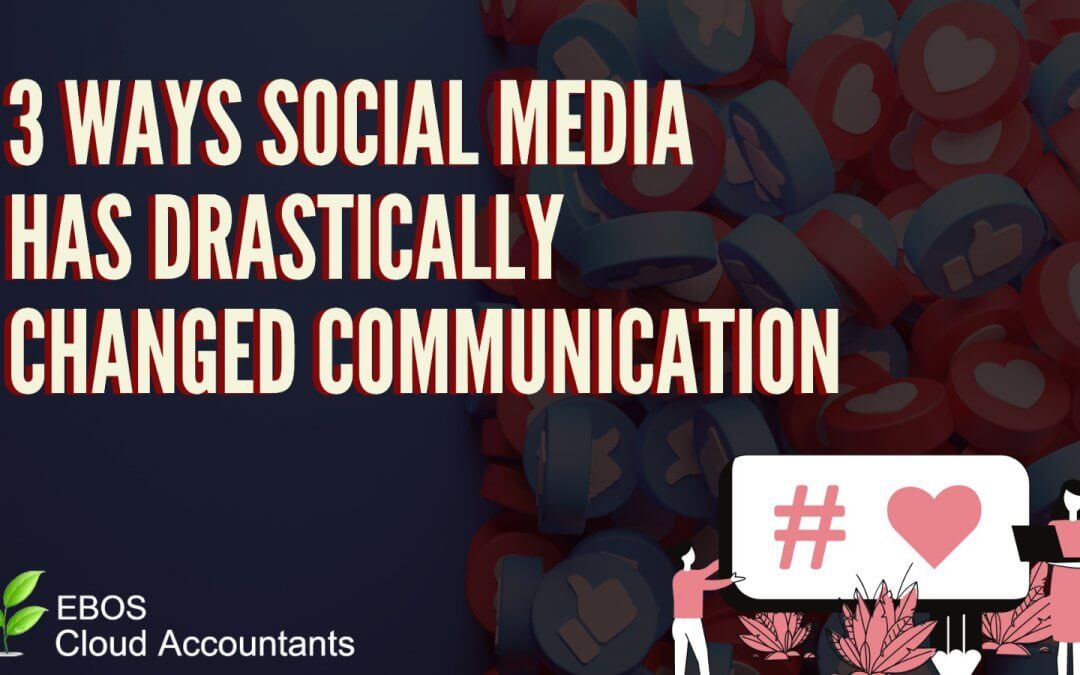What Changes to Communication Have Social Media Made?
More than 3.5 billion individuals use social media worldwide, according to the most recent social media statistics. As you may already be aware, there are around 7.8 billion people on the planet, which means that almost half of them use social media. When you consider it, isn’t it a little frightening?
Social networks are becoming one of the dominant ways we communicate. People are more obsessed with checking their smartphone every 2 minutes than engaging in meaningful conversation with their child or spouse. Social media and technology are double-edged swords. It’s awesome to have and can really help us, but it also distracts us to the point of being blind and deaf to everything else going on.
Before technology, our options for social interaction were very constrained. Additionally, those with whom we did interact were folks we already knew in person. People my age (and older) used to communicate using landline telephone calls, letters in the mail, handwritten love notes, developed pictures, beepers, morse codes, and other methods.
Interactions
We are able to “connect” with individuals all over the world thanks to the millions of social media users. That’s why you see folks who have tens of thousands of Instagram followers or thousands of Facebook “friends.” We feel compelled to communicate with others more urgently thanks to the internet. After all, it only takes a few seconds to send a text, DM, email, or snap. Instant messaging has become the standard method of communication since it is quick and convenient to send and receive messages.
Zero Filter
People were spoken to directly before social media became commonplace. We may now use the internet to express our views, opinions, and ideas. People have embraced social media as a platform to tell the world about their own experiences. All social media sites are uncensored, allowing people to express themselves freely even though some stories are motivating. Particularly for the younger generation, this can be very worrisome. Sometimes, the way we communicate through text can convey the wrong message to others. Different people may have different perspectives on the same things, which could lead to disagreements.
Social abilities
Despite the benefits of technology, most individuals regrettably prefer to check their phones every two minutes to have meaningful discussions. Because of their reliance on social media, some people nowadays are entirely incapable of engaging in conventional conversation and interaction. I frequently see couples out on dates using their phones whenever I’m in public. I see parents talking on their phones while ignoring their kids. I see social circles of friends snapchatting or perusing Instagram feeds. The problem with technology is that it has deceived people into believing that it unites people while, in actuality, it only serves to divide us.
There is no right or incorrect way to interact with others or use social language into daily life. But because of technology, we are all being brainwashed into this “new world” of communication, and if we haven’t already, we will almost certainly be forced to adopt this new style of communication.
As communication and information travel faster and faster, the world seems to get smaller and smaller. As a result, this changes how the world communicates, especially with today’s obsession with social media networks.
Before social media, we were extremely limited in our means to interact with others and we were limited largely to the people that we knew in-person. There were things we (those my age and older) had to deal with that millennials do not have to – your significant other’s parent answering the phone when you called, waiting for a letter in the mail, waiting a week to get your pictures that you sent off to be developed, and so on.
The internet and social media has drastically changed the way people all over the world interact and communicate.
What impact do you think social media is having on communication? Share your thoughts with us!







